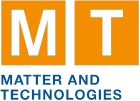Speaker
Dr
Alexander Blinne
(Helmholtz Institut Jena)
Description
While analytic calculations may give access to complex-valued electromagnetic field data which allow trivial access to envelope and phase information, the majority of numeric codes uses a real-valued represantation. This typically increases the performance and reduces the memory footprint, albeit at a price: In the real-valued case it is much more difficult to extract envelope and phase information, even more so if counter propagating waves are spatially superposed. A novel method for the analysis of real-valued electromagnetic field data is presented in this paper. We show that, by combining the real-valued electric and magnetic field at a single point in time, we can directly reconstruct the full information of the electromagnetic fields in the form of complex-valued spectral coefficients ($\vec{k}$-space) at a low computational cost of only three Fourier transforms. The method allows for counter propagating plane waves to be accurately distinguished as well as their complex spectral coefficients, i. e. spectral amplitudes and spectral phase to be calculated. From these amplitudes, the complex-valued electromagnetic fields and also the complex-valued vector potential can be calculated from which information about spatiotemporal phase and amplitude is readily available. Additionally, the complex fields allow for efficient vacuum propagation allowing to calculate far field data or boundary input data from near field data. An implementation of the new method is available as part of PostPic, a data analysis toolkit written in the Python programming language.
Author
Dr
Alexander Blinne
(Helmholtz Institut Jena)
Co-authors
Matt Zepf
(HIJ)
Mr
Stefan Tietze
(Helmholtz Institute Jena, Fröbelstieg 3, D-07743 Jena, Germany)
Dr
Stephan Kuschel
(Helmholtz Institute Jena, Fröbelstieg 3, D-07743 Jena, Germany; Institute for Optics- and Quantum Electronics, Friedrich Schiller University Jena, Max-Wien-Platz 1, 07743 Jena, Germany)

